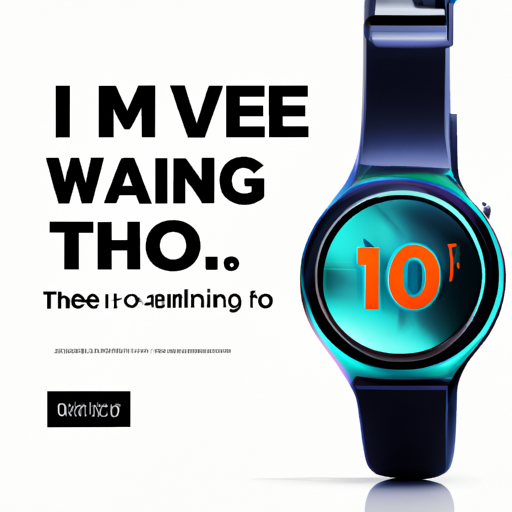2023-10-03 08:00:52
A Self-Driving Car from 1986 Sparks AI Research

 Get a Free Speed Boost on Your Internet Connection: The One Surprising Trick Virgin Media Users Need to Try Now
Get a Free Speed Boost on Your Internet Connection: The One Surprising Trick Virgin Media Users Need to Try NowDr Amir Atapour-Abarghouei, an AI researcher at Durham University, is focused on removing biases from AI systems to create a fairer and more equitable future. His interest in AI and machine learning was sparked by a self-driving car called Navlab 1, which was based on neural networks.
The Task of Monocular Depth Estimation
During his PhD work, Atapour-Abarghouei focused on computer vision and scene understanding, particularly monocular depth estimation. This challenging task involves estimating the distance of objects in an image from the camera. Obtaining accurate depth images can be difficult, so Atapour-Abarghouei had to think outside the box.
 Is your Wi-Fi speed being murdered? The common mistake all BT broadband users must check today
Is your Wi-Fi speed being murdered? The common mistake all BT broadband users must check todayRemoving Bias in AI Systems
Atapour-Abarghouei's current research revolves around removing algorithmic bias from automated skin lesion classification systems. While AI systems have shown great potential in dermatology, they are not immune to biases present in the training data. These biases can lead to prediction irregularities that may disproportionately affect certain individuals or communities.
His research involves 'bias unlearning,' a technique that removes bias from AI models by focusing on valuable cues for lesion classification while disregarding any knowledge of skin tone. This approach improves accuracy and reduces performance disparities in melanoma detection on different skin tones.
 A Disturbing Bug in a Popular Android App Has Led Google to Take Drastic Action: Check Your Phone Now!
A Disturbing Bug in a Popular Android App Has Led Google to Take Drastic Action: Check Your Phone Now!The Importance of Unbiased AI Systems
Atapour-Abarghouei emphasizes the importance of eliminating bias in AI systems. Unaddressed biases can result in misdiagnoses, decreased trust in the technology, and perpetuation of healthcare disparities. By removing bias, AI systems can provide fair and equitable decision-making processes, improving lives and leveling the playing field for everyone.
Achieving Fairness through AI Research
Atapour-Abarghouei's research not only drives knowledge expansion and innovation but also addresses pressing issues in AI and machine learning. His work on automated diagnostic systems for skin cancer demonstrates the potential for AI to provide accessible and cost-effective healthcare solutions to individuals with limited access to specialists. Additionally, eliminating bias in AI systems contributes to a fairer, more innovative, and harmonious future.
 Phones LTD Offers Samsung S23 Ultra EE Deals with Complimentary Galaxy Watch5
Phones LTD Offers Samsung S23 Ultra EE Deals with Complimentary Galaxy Watch5The Challenges and Misconceptions of AI Research
As an AI researcher, Atapour-Abarghouei faces various challenges. Keeping up with the rapid advancements in the field requires continuous learning and staying updated with the latest techniques and research papers. Furthermore, addressing misconceptions is crucial, as AI systems are not infallible and often face ethical concerns relating to bias, transparency, and accountability.
Effective communication with non-technical audiences is another challenge. Atapour-Abarghouei believes in promoting realistic expectations and engaging in science communication to counter misinformation and encourage accurate understanding of AI concepts.
 Discover the Samsung S23 Ultra EE Deals with Phones LTD: Don't Miss the Chance to Receive a Complimentary Galaxy Watch5!
Discover the Samsung S23 Ultra EE Deals with Phones LTD: Don't Miss the Chance to Receive a Complimentary Galaxy Watch5!The Changing Landscape of Public Engagement with Science
Recent years have seen a significant shift in public engagement with science. Events like the Covid-19 pandemic have heightened interest in scientific topics, leading to increased public engagement. However, this increased interest also comes with the prevalence of misinformation and pseudoscience, emphasizing the importance of countering false narratives and providing accurate science communication.
Atapour-Abarghouei believes in making AI more approachable and accessible through clear and jargon-free communication. He actively collaborates with schools, libraries, and community centers to offer workshops and talks that introduce AI to diverse groups of people.
Thank you for reading!
We hope you enjoyed learning about Dr Amir Atapour-Abarghouei's inspiring research. If you're interested in more exciting news and insights, don't forget to check out our website!
If you would like to know other articles similar to AI Researcher Inspired by 1986 Self-Driving Car updated this year 2025 you can visit the category Breaking Tech News.

Leave a Reply